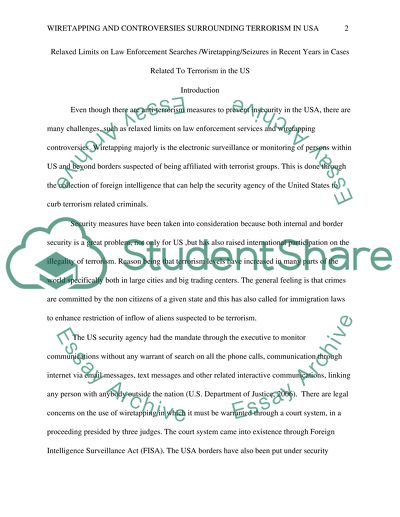Cite this document
(“Relaxed limits on law enforcement searches/wiretapping/seizures in Research Paper”, n.d.)
Retrieved de https://studentshare.org/law/1392490-relaxed-limits-on-law-enforcement-searches
Retrieved de https://studentshare.org/law/1392490-relaxed-limits-on-law-enforcement-searches
(Relaxed Limits on Law Enforcement searches/wiretapping/Seizures in Research Paper)
https://studentshare.org/law/1392490-relaxed-limits-on-law-enforcement-searches.
https://studentshare.org/law/1392490-relaxed-limits-on-law-enforcement-searches.
“Relaxed Limits on Law Enforcement searches/wiretapping/Seizures in Research Paper”, n.d. https://studentshare.org/law/1392490-relaxed-limits-on-law-enforcement-searches.


